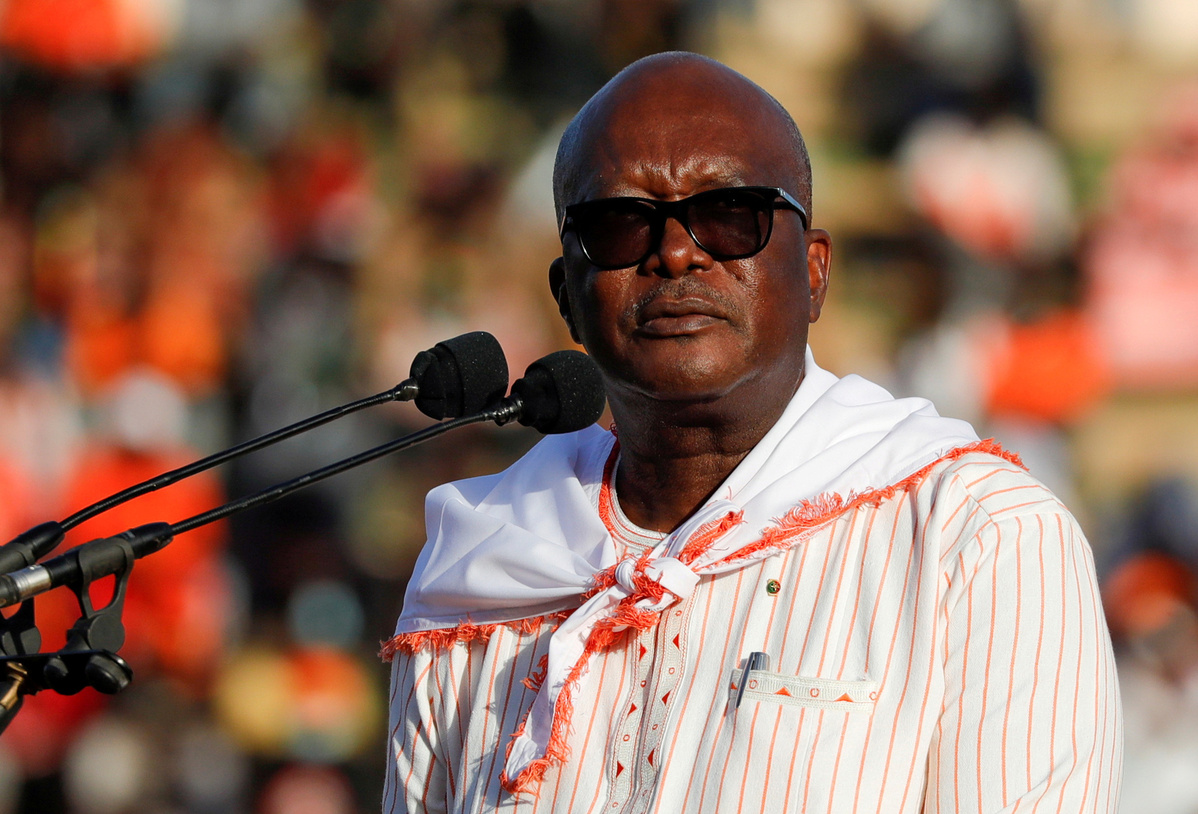Burkina Faso incumbent president wins election


Roch Marc Christian Kabore, Burkina Faso's incumbent president, will serve another five years as Burkina Faso's leader, according to preliminary results announced by the National Independent Electoral Commission on Nov 26.
According to the official results, Kabore garnered 57.87 percent of the vote and he is provisionally elected president of Burkina Faso in the first round. Eddie Komboigo, the candidate of a once-ruling party, came second in Sunday's vote with 15.48 percent of the ballot, followed by Zephirin Diabre, considered by pundits to be the best-placed opposition hopeful, with 12.46 percent.
Speaking shortly after the announcement, Kabore offered an olive branch to the opposition, which has criticized the election as flawed.
"I will deploy all my efforts so that through continuous consultation and through dialogue, we can work together for peace and development. We are all Burkinabe, seeking to build a better Burkina Faso together," Kabore said.
Kabore, who received 1.6 million votes of the nearly 3 million cast, was the favorite in the election despite being under fire for what critics say has been an uninspiring response to a 5-year-old jihadist insurgency that has rolled in from Mali. By winning an overall majority in the first round he avoids a runoff vote in which he would have had to stand against a single candidate backed by a united opposition.
According to the opposition, the vote was marked by fraud and flawed procedures. As a result, the opposition has threatened to reject the results which they claim are stained by irregularities. Their complaints include polling stations that either did not open or opened late, insecure handling of ballot boxes and arbitrary changes to voting areas.
The National Independent Electoral Commission said that because of the unrest, the election was not held across at least one-fifth of the country, denying up to 350,000 people the right to vote. However, Kabore's People's Movement for Progress party said that all candidates were equally affected by the problems and that in any case these were not on a scale to have any major impact on the result.
The African Union and the Economic Community of West African States, a regional bloc, said appeals should be made through legal avenues in a calm environment and especially to avoid violence.

































